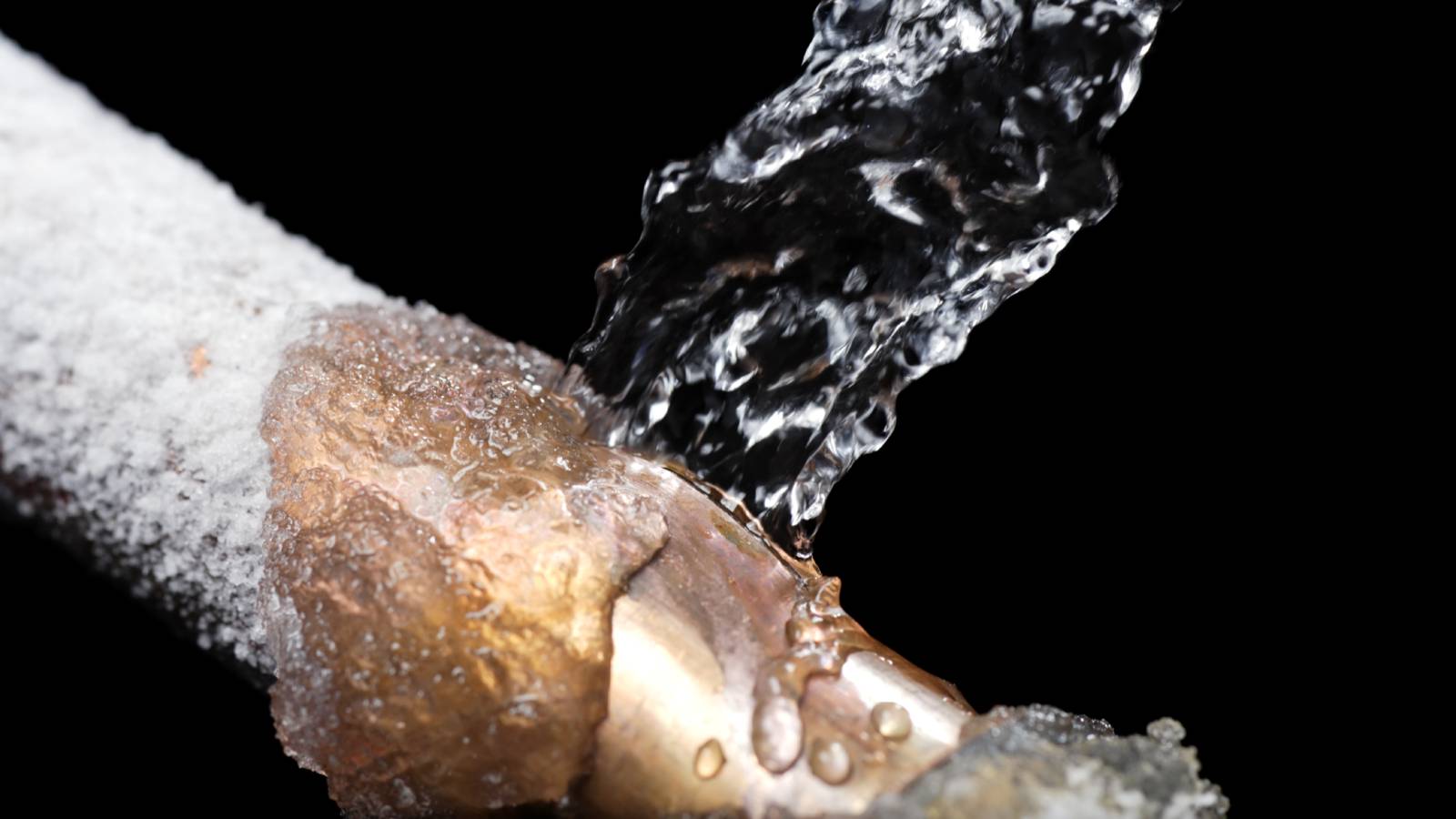It’s that time of year again: subzero temperatures wrecking havoc on your plumbing. When water freezes, it expands. That’s why a can of soda explodes if it’s put into a freezer to chill quickly and forgotten. When water freezes in a pipe, it expands the same way. If it expands enough, the pipe bursts, water escapes and serious damage results.
Surprisingly, ice forming in a pipe does not typically cause a break where the ice blockage occurs. It’s not the radial expansion of ice against the wall of the pipe that causes the break. Rather, it is the pressure from the unfrozen water between the ice and the closed faucet that is the primary cause of ruptures. It’s this increase in water pressure that leads to pipe failure. Usually the pipe bursts where little or no ice has formed.
The actual temperature outside obviously has a large impact on whether the water will freeze or not. Wind chill, however, is an even bigger culprit. Research at the University of Illinois has shown that wind chill, the cooling effect of air and wind that causes the human body to lose heat, can play a major role in accelerating ice blockage, and thus bursting, in water pipes. The key to protecting your pipes is to keep the cold wind and air off of them.
Pipes in attics, crawl spaces and outside walls are all vulnerable to freezing, especially if there are cracks or openings that allow cold, outside air to flow across the pipes. Holes in an outside wall where television, cable or telephone lines enter can provide access for cold air to reach pipes. The size of pipes and their composition (e.g., copper or PVC) have some bearing on how fast ice forms, but they are relatively minor factors in pipe bursting compared with the absence of heat, pipe insulation and exposure to a flow of subfreezing air.
What Should I Do?
The longer you wait to address water damage, the worse the problem becomes. Immediately, you should place a call to a water damage restoration company, as well as to your insurance adjustor to make a claim.
Source: http://trustgemini.com
